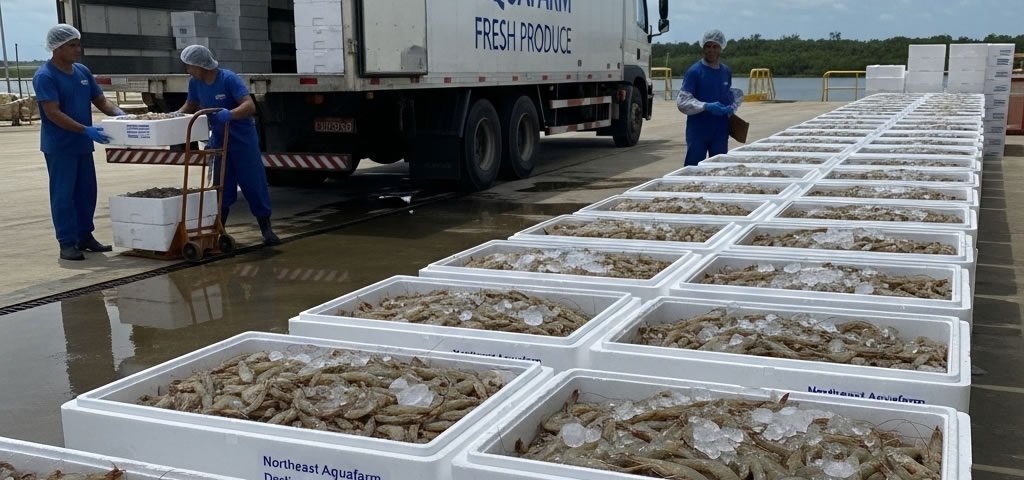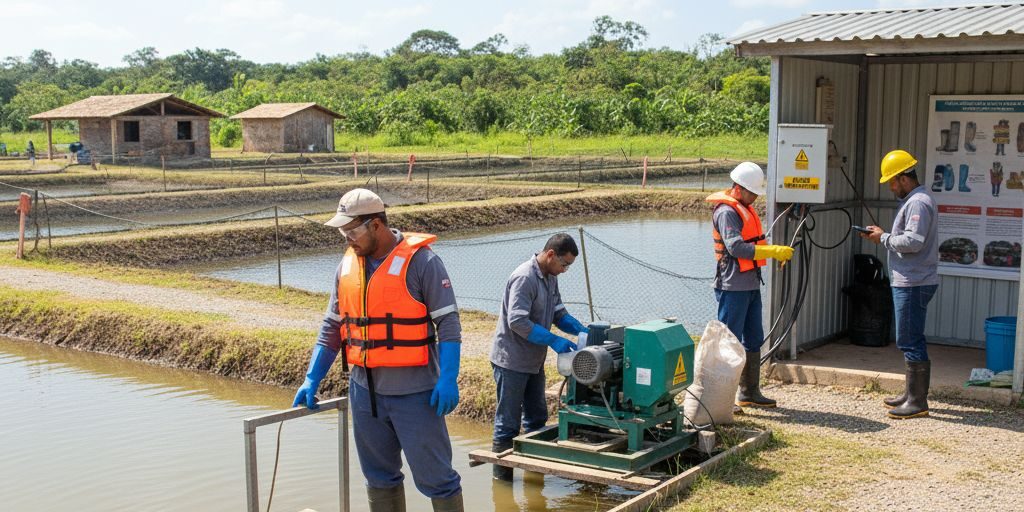- Software Gestor para Aquicultura
- (85) 2139-6730
- contato@despesca.com.br
Main laws and regulations for aquaculture activities in Brazil.

Main diseases in shrimp and fish (prevention, identification and treatment).
04/08/2025
Market trends for shrimp and fish
06/08/2025Understanding the Essential Laws and Regulations for Brazilian Aquaculture
For us producers, the success of a shrimp or fish farm depends on much more than just good management and quality water. The market game requires us to “play by the rules,” and to do so, understanding aquaculture legislation in Brazil is fundamental. It might seem like a daunting task, but legalizing your operation is an investment in the security and credibility of your business. Being compliant with shrimp farming laws and fish farming regulations not only prevents headaches but also opens doors to new opportunities.
The Main Guardians of the Sector
In the Brazilian scenario, the regulation of aquaculture involves two major players. The first is MAPA (Ministry of Agriculture, Livestock, and Food Supply), responsible for production, sanitary, and traceability standards. The second, and no less important, are the state or federal environmental agencies (like IBAMA), which handle aquaculture environmental licensing. Both work to ensure that our activity is sustainable, safe, and responsible.

The Legal Foundation: The Fishing Law
The main regulation that governs our sector is Law No. 11,959/2009, known as the Fishing Law. It establishes the guidelines for the national fishing and aquaculture policy, setting rules for the sustainable use of aquatic resources, the protection of ecosystems, and the organization of production. It is from this law that other norms and ordinances are created to detail how we must operate.
Environmental Licensing: A Passport to Legality
Environmental licensing is, without a doubt, the most critical and detailed part of the regularization process. It is mandatory for most operations and evaluates the potential environmental impacts of your farm. The process generally involves three stages: the Preliminary License (LP), which approves the project’s feasibility; the Installation License (LI), which authorizes construction; and the Operating License (LO), which permits the start of production. Having the LO in hand is proof that your farm meets all fish farming regulations and shrimp farming laws.
Registration with MAPA: Formalizing Production
In addition to environmental licensing, the registration of your production unit with MAPA is a legal requirement consolidated by Interministerial Ordinance No. 4/2020. This registration is essential for sanitary control and formalizing your business. It is what certifies your status as a producer and allows your production to be traced and validated, which is crucial for accessing more demanding markets, such as export.
The Return on Investment: Why Regularization Pays Off
We know that the regularization process can require time and investment. But, among us producers, the return is huge. A legalized farm gains access to specific credit lines, can participate in government incentive programs, and, most importantly, stands out in the market. Traceability and a commitment to good aquaculture practices are no longer a differential but a requirement for those who seek long-term sustainability and success.
In short, the regularization of your aquaculture farm should not be seen as bureaucracy, but as a business strategy. It’s what transforms an operation into a solid enterprise, prepared for the future. A modern producer not only understands management and nutrition but also knows their responsibilities and uses them to strengthen their brand and secure their position in the market.




